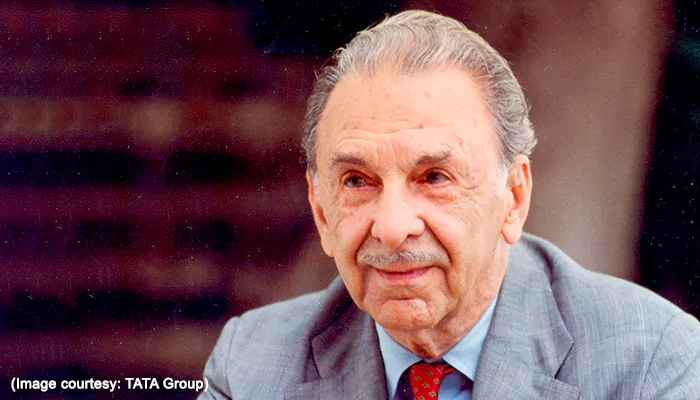Happy Birthday, Mukesh Ambani: The Rivalry with His Brother, Anil - Explained
- Sayan Paul
- 9 months ago
- 8 minutes read

While Mukesh Ambani is Asia’s richest person, his brother Anil is a billionaire turned bankrupt.
Sibling rivalry is as old as time; one wants the bigger slice of cake, the other wants the entire cake shop. But when the siblings in question are Mukesh and Anil Ambani, the stakes aren’t really dessert, instead they’re billions. Born into the empire of the legendary Dhirubhai Ambani, the Ambani brothers had it all: wealth, power, and an unprecedented legacy to carry forward. But what followed was less “family business” and more high-stakes drama. Boardroom battles, public fallouts, and a business split that shook the corporate world. Well, It’s the kind of epic clash that could make Bollywood thrillers run out of money. Today, Mukesh is the undisputed king of the business scene, while Anil, once a billionaire, has faced the unthinkable, bankruptcy. It’s a tale of two brothers, one empire, and a rivalry that’s anything but brotherly.
1980s :: Mukesh and Anil ( Sons of India's Leading Industrialist Dhirubhai Ambani ) pic.twitter.com/wOzYmvRaZ5
— indianhistorypics (@IndiaHistorypic) January 29, 2022
(Credit: indianhistorypics)
Mukesh Ambani, chairman of Reliance Industries and the world’s 9th richest person as of 2024, turns 68 today. On this occasion, let’s take a look at his long-standing rivalry with brother Anil, and how it has shaped India’s overall business landscape.
(P.S. All information below is backed by legit sources, just so you know!)
The Glory Days of Brotherly Love
Once upon a time in Mumbai, Mukesh (born 1957) and Anil Ambani (born 1959) were the golden boys of Dhirubhai Ambani, the visionary trader who spun Reliance Industries into India’s corporate crown jewel. Mukesh, the quiet one with a knack for strategy, joined Reliance in 1981, turning it into a petrochemical powerhouse. Anil, the suave dealmaker with a megawatt smile, swooped in by 1983, charming global investors and raising billions. Together, they were unstoppable, like chai and samosa. "Two bodies, one soul,” (please don't translate it as "Do jism, ek jaan") their colleagues gushed, as the duo expanded Reliance into textiles, telecom, and beyond.
1986 :: Anil and Mukesh , Sons of Industrialist Dhirubhai Ambani On The Cover of Gentleman Magazine pic.twitter.com/vast9WuMRo
— indianhistorypics (@IndiaHistorypic) July 2, 2023
(Credit: indianhistorypics)
Insiders called them "Ram-Lakshman" for their unity. Well, hold that idea for a while.
And The Family Plot Thickens
The fairy tale hit a speed bump in 1991 when Anil fell for Bollywood actress Tina Munim. Dhirubhai and mom Kokilaben weren’t happy with this, because Bollywood wasn’t exactly their vibe for a daughter-in-law. “I had to fight for my love,” Anil later said in an interview, channeling his inner Shah Rukh Khan. The family eventually blessed the marriage, but tension rose silently. Mukesh, married to Nita Ambani, played the dutiful son, keeping the peace. Thinking about this, many wonder today: was this the first crack in their bromance? Maybe or maybe not; but it was definitely a hint of storms to come.

(Image Credit: BollywoodShaadis)
Then, in July 2002, Dhirubhai passed away after a major stroke, leaving no will. With no roadmap for succession, Mukesh became chairman and Anil vice-chairman. But power dynamics shifted, and Anil felt like the sidekick in Mukesh’s solo movie. By November 2004, the gloves were off. Anil fired off a fiery letter to the Reliance board, demanding better governance. Mukesh admitted to “differences” in media, and India gasped. The Ambani brothers were at war, and the nation was hooked.

The Great Divide
Kokilaben, the matriarch of the Ambani family, swooped in to save the day. In June 2005, she brokered a deal to split Reliance. Mukesh got the heavy hitters (oil, gas, petrochemicals) under Reliance Industries Limited (RIL). Anil snagged the shiny new toys (telecom, power, financial services), forming the Anil Dhirubhai Ambani Group (ADAG). A non-compete clause ensured they’d stay out of each other’s sandboxes for a decade. “It’s not a business split; it’s a family arrangement,” an analyst quipped. The Bombay High Court gave its nod in December 2005.
(Credit: outlook_business)
The Gas War Erupts
But as they say, peace was never an option! The brothers were back at rivalry faster than expected. The drama centered on a 2006 gas supply deal where Mukesh’s RIL was to sell gas to Anil’s Reliance Natural Resources Ltd. at $2.34 per million British thermal units. When government prices jumped to $4.2, Mukesh pulled the plug, citing “national interest.” Anil wasn’t having it. He went full-on, splashing ads across newspapers in August 2009, claiming Mukesh’s move would jack up electricity bills by 50%. The Mumbai High Court ordered a renegotiation in July 2009, but the Supreme Court, in May 2010, sided with Mukesh, declaring gas a national resource, not a family IOU. “Family agreements don’t trump policy,” the court ruled, leaving Anil’s power projects high and dry.
More than just a sibling spat, this left a big impact on India’s energy sector. Mukesh’s RIL tightened its grip on gas, while Anil’s dreams of powering India flickered. Finance Minister Pranab Mukherjee feared market chaos and hence begged them to stop. The feud was now a national crisis, with India’s business scene feeling the heat.
Notably, the gas war exposed corporate governance gaps, forcing regulators to tighten rules. It also showed how family feuds could sway markets, with Reliance stocks swinging like a pendulum.
Rise of the King, Fall of the Prince
Post-split, Mukesh played his cards like a chess grandmaster. In 2016, he launched Reliance Jio, offering dirt-cheap data with the aim of turning India into a digital nation. By 2023, Jio had 450 million users, crushing rivals and making Mukesh Asia’s richest man. Also, his media and retail ventures made RIL a juggernaut.
Anil, the flashy risk-taker, wasn’t so lucky in the market. His ADAG empire, once worth $60 billion, crumbled under Rs 48,000 crore in debt. Reliance Communications tanked, hit by the 2011 2G scandal and Jio’s dominance. By 2019, Anil faced bankruptcy, owing everyone from Ericsson to small lenders. His net worth? A heartbreaking drop from $42 billion in 2008 to a self-claimed zero. “I’m worth nothing,” he told a court, a line that broke India’s heart.
From BBG | Anil Ambani To London Court: Current value of my shareholdings is down to approximately $82.4 m. My net worth is zero after taking into account my liabilities. Do not hold any meaningful assets that can be liquidated for these proceedings pic.twitter.com/vPiZXHAKaL
— CNBC-TV18 (@CNBCTV18Live) February 7, 2020
(Credit: CNBC-TV18)
Jio’s rise reshaped India’s telecom, forcing other networks to innovate, and wiping out smaller players. Anil’s fall became a cautionary tale for family businesses: over-leverage is a one-way ticket to disaster.
A Bollywood-Style Reconciliation
In a plot twist, Mukesh bailed Anil out in 2019, paying Rs 458 crore to settle Ericsson dues, saving Anil from jail. Anil’s thank-you note - “My sincere thanks to my respected elder brother, Mukesh” - was the corporate equivalent of a tearful hug. Almost a decade-and-a-half after a bitter separation, they came together. Are they BFFs again? Not quite, but the hatchet’s buried...mostly. Mukesh rules from his Antilia, while Anil rebuilds in defense and infrastructure.
18th March will now be celebrated as Brother's day!!!
— Vivid Bharthi (@VividBharthi) March 20, 2019
(Mukesh Ambani helped Anil Ambani for Ericsson payment)
The day will henceforth be a new festival - *Bhai Dues* pic.twitter.com/7WmGJZFtC8
(Credit: Vivid Bharthi)
The Ambani Effect on India
The Mukesh-Anil feud was much more than just family drama. It totally reshaped India’s business map. Mukesh’s Jio sparked a telecom revolution, making data cheaper than street food and forcing competitors to merge or die. His RIL empire, spanning oil to OTT platforms, set a new bar for conglomerates. Anil’s collapse highlighted the risks of debt-fueled ambition, with business schools citing him as “what not to do.” Kokilaben’s mediation showed family can bridge corporate wars, but the saga screamed for better governance. As one analyst aptly put it, “The Ambanis proved sibling rivalry can move markets—and mountains.”
1960s :: Young Mukesh and Anil With Father Dhirubhai and Mother Kokilaben Ambani pic.twitter.com/L9wRGMCIrq
— indianhistorypics (@IndiaHistorypic) September 21, 2021
(Credit: indianhistorypics)
Precisely, Mukesh built an empire; Anil taught us humility. Together, they rewrote India’s corporate script.
So, Where Are They Now?
Today, Mukesh, 68, is the king of Indian business, living life king-size. Anil, 66, is clawing his way back, focusing on niche sectors. Will the brothers ever reunite for a Reliance sequel? Maybe not, but their story is undoubtedly a masterclass in ambition, resilience, and the messy beauty of family.
References:
- Business Insider - The Full Story of the Massive Feud Between the Billionaire Ambani Brothers
- South Ch**a Morning Post - Mukesh and Anil Ambani’s Bitter Feud, Accusations of Extravagance and Potential Jail Time, by Sarah Zheng
- Wikipedia - Anil Ambani
- Wikipedia - Mukesh Ambani
- The Economic Times - How Mukesh Ambani Will Split His Empire to Avoid His Father’s Folly, by Arihant Kuba and Pankaj Doval
- South Ch**a Morning Post - How Ambani Family Pressure Caused Anil and Tina to Split—and Why They Got Back Together, by Sarah Zheng
- Times of India - When Dhirubhai and Kokilaben Ambani Were Against Anil Ambani Marrying Tina Munim
- India Today - Forbes Billionaires List 2025: Mukesh Ambani Drops Out of Top 10,” by India Today Business Desk
- NDTV - Mukesh Ambani, Anil Ambani Seen Together at Family Event,” by NDTV Correspondent












